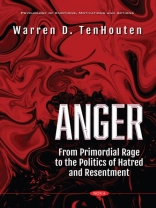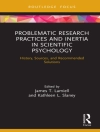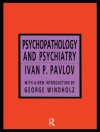This work explores and analyzes anger. We examine it as a single emotion, and as it commonly occurs in combination with other emotions in complex social relationships that often involve power dynamics. We utilize Robert Plutchik’s primary-emotions classification to hierarchically categorize anger and other basic and complex emotions, and we compare constructivist and basic-emotion theories of emotion. We conceptualize the primary emotions–including anger–as prototypical adaptive reactions to key existential problems: temporality, social identity, exchange, and hierarchy; these are represented by the elementary social-relations models, communal-sharing (CS), equity-matching (EM), hierarchical-ranking (HR), and socioeconomic-exchanging (SE). Basic emotions are adaptive reactions to these social-relations models: positive and negative experiences of CS yield joy-happiness and sadness-grief; EM, acceptance/incorporation and disgust/rejection; HR, anger and fear; and SE, anticipation and surprise. Anger is uniquely reactive to both positive and negative experiences of social power. Anger is typically elicited by a perceived threat to the self or to the self’s project to preserve or attain valued status, resources, or goals. Anger triggers activate a three-stage sociocognitive appraisal process in which the self: (i) perceives that its social position or valued resource is at stake; (ii) endeavors to modify another actor’s social intentions concerning norms of social sharing and social cohesion; and (iii) develops an intention act. We examine emotions in power-based social relations, and define secondary emotional pairings that include anger. We conceptualize a pride-shame system, wherein the emotions of pride (an angry joy) and shame (a fearful sadness) accompany outcomes of success and failure in dominance competitions. We also consider the aggression-alarm system, comprised of aggressiveness (anger and anticipation, and alarm (fear and surprise). We identify two potentially toxic, complex emotions–hatred and resentment—as the essential political emotions. Both share anger as a key component, and also include contempt. While anger-rage is central to hatred, hatred is significantly different for it can be harnessed for pernicious ends, becoming an expression or instrument of power; resentment is more typically an emotion of the powerless, arising as a reaction to unjustified suffering. We link anger, hatred, resentment, and other emotions to contemporary United States politics, particularly to competing political ideologies of globalism-neoliberalism, democratic socialism, and nationalism-populism. Globalists’ anger includes disgust, even hatred–directed toward opponents of neoliberal economic globalization. Democratic socialists’ and populists’ anger can advance from helpless, Nietzschean ressentiment, to a forceful resentment. This process is characterized by an inversion of the four primary emotions of powerlessness (acquiescence, fear, sadness, expectation) into the opposite emotions of empowerment (disgust, anger, joy, and surprise). We hypothesize a parallel inversion of the secondary-level emotions of powerlessness (submissiveness, anxiety, resentment, pessimism, fatalism, and shame) into the opposite secondary emotions of empowerment–contempt, outrage, derisiveness, delight, shock, and pride.
Warren D. TenHouten
Anger: From Primordial Rage to the Politics of Hatred and Resentment [PDF ebook]
Anger: From Primordial Rage to the Politics of Hatred and Resentment [PDF ebook]
Beli ebook ini dan dapatkan 1 lagi PERCUMA!
Bahasa Inggeris ● Format PDF ● Halaman-halaman 278 ● ISBN 9781536185287 ● Penerbit Nova Science Publishers, Inc. ● Diterbitkan 2020 ● Muat turun 3 kali ● Mata wang EUR ● ID 8062215 ● Salin perlindungan Adobe DRM
Memerlukan pembaca ebook yang mampu DRM












